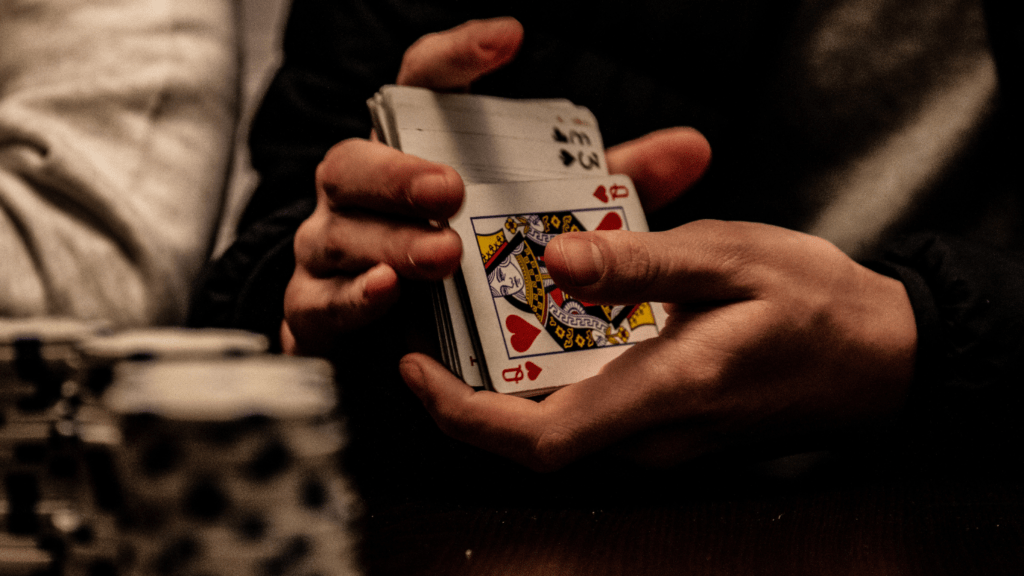Have you ever wondered why some people are drawn to the thrill of gambling, while others steer clear of it? In this article, I’ll delve into the fascinating world of the psychology of gambling, exploring the reasons behind our inclination to play and the strategies to play smart.
From the adrenaline rush of risk-taking to the allure of potential rewards, the psychology behind gambling behaviors is complex and multifaceted. As I uncover the underlying motivations that drive individuals to engage in this activity, you’ll gain valuable insights into the psychological factors at play.
Moreover, I’ll share practical tips on how to approach gambling in a responsible and strategic manner. By understanding the psychological principles that influence our decisions at the casino or while betting, you can enhance your gaming experience and make informed choices. Stay tuned to discover the secrets of playing smart in the world of gambling.
Understanding the Psychology of Gambling
As I delve into the psychology of gambling, it’s fascinating to uncover the intricate reasons behind our attraction to this activity and how we can navigate it intelligently. Let’s explore two critical aspects that shed light on the psychology of gambling.
- The Thrill of Risk-Taking
I find that the allure of gambling often stems from the thrill of taking risks. It’s the excitement of not knowing the outcome and the adrenaline rush that comes with it that captivates many individuals. The uncertainty and unpredictability of gambling create a sense of excitement that some find irresistible, amplifying the overall experience of playing games of chance. - Cognitive Biases in Gambling
In my observation, cognitive biases play a significant role in influencing our decisions while gambling. These biases can lead us to make choices based on flawed reasoning or skewed perceptions, affecting how we approach games of chance. Recognizing and understanding these biases is crucial in making informed decisions and adopting strategies to play smart. By being aware of our cognitive tendencies, we can enhance our gameplay and avoid falling into common traps while engaging in gambling activities.
Motivations Behind Gambling
Exploring the motivations behind gambling reveals a variety of factors that drive individuals to engage in this activity. Understanding these motivations is crucial in comprehending the allure of gambling and the reasons behind its popularity.
Social Influences
Social influences play a significant role in motivating individuals to gamble. The social aspect of gambling, such as participating in games with friends or family, can enhance the overall experience. Additionally, societal norms and cultural practices can influence an individual’s decision to engage in gambling activities.
The Lure of Monetary Gain
The potential for monetary gain is a primary motivation for many gamblers. The prospect of winning money or valuable prizes drives individuals to participate in various forms of gambling. The allure of financial rewards can be highly captivating and serve as a powerful incentive for individuals to continue gambling.
Strategies to Gamble Responsibly

When it comes to gambling, responsible play is essential to enjoy the activity without negative consequences. Here are some strategies to help you gamble responsibly:
Setting Limits and When to Stop
I set clear limits on how much money I’m willing to spend before starting to gamble. It’s crucial to establish boundaries to prevent overspending and potential financial strain. Additionally, I always determine a quitting point – a specific win goal or loss limit – to know when to stop playing, ensuring that emotions don’t override logic.
Choosing Games Wisely
Selecting the right games can significantly impact your gambling experience. I always opt for games that I understand and enjoy, giving myself a better chance of winning. By choosing games wisely based on my skills and preferences, I increase my entertainment value and the likelihood of making informed decisions while gambling.
Psychological Techniques to Combat Problem Gambling
When tackling problem gambling, various psychological techniques can be utilized to regain control and make informed choices. Here’s how to incorporate these strategies effectively:
Cognitive Behavioral Approaches
To address problem gambling, cognitive behavioral approaches can be instrumental. These techniques focus on recognizing and modifying unhealthy thought patterns and behaviors related to gambling. By identifying triggers, developing coping mechanisms, and restructuring cognitive processes, individuals can better manage their impulses and make conscious decisions to avoid problematic gambling behaviors.
Self-Help and Support Networks
Engaging in self-help practices and leveraging support networks are pivotal in combating problem gambling. Seeking help from support groups, helplines, or counseling services can provide individuals with the necessary tools and resources to overcome addictive behaviors. Sharing experiences, receiving guidance, and staying accountable within a supportive community can significantly contribute to maintaining a balanced approach to gambling and preventing compulsive habits from escalating.

 Flossie is an avid gaming enthusiast and a seasoned writer at Jackpot Joyfully. With a deep understanding of the gambling world, Flossie brings insightful strategies, tips, and updates to help players elevate their gaming experience. Her passion for responsible play and her dedication to providing valuable content make her articles a must-read for both newcomers and seasoned bettors alike.
Flossie is an avid gaming enthusiast and a seasoned writer at Jackpot Joyfully. With a deep understanding of the gambling world, Flossie brings insightful strategies, tips, and updates to help players elevate their gaming experience. Her passion for responsible play and her dedication to providing valuable content make her articles a must-read for both newcomers and seasoned bettors alike.
